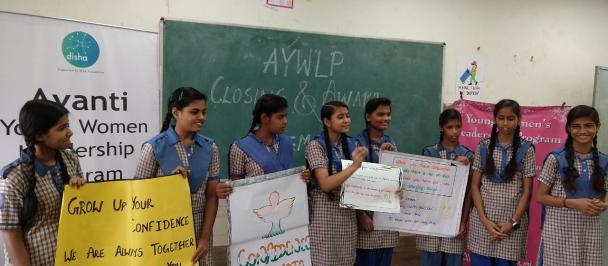Rhea Daima, Policy Consultant at UNDP India
Policy Dialogue: Digital Solutions for Inclusive and Accelerated Achievement of the SDGs
February 11, 2023

Together with the Shiv Nadar Institution of Eminence, UNDP organized a Policy Dialogue on "Digital Solutions for Inclusive and Accelerated Achievement of the SDGs" on 10th February 2023. Bringing together partners from academia, civil society, think tanks, multilaterals, and the government, the Dialogue focused on the role of Digital Public Goods in ensuring that India achieves the Sustainable Development Goals (SDGs) – Leaving No One Behind. The discussion also reflected on India's experience with its digital transformation and the lessons it holds for other developing countries.
Amitabh Kant, the G20 Sherpa, delivered the keynote address at the event. He spoke of the India Stack, a moniker for the country's digital public infrastructure that has facilitated hassle-free payments, built digital identities for citizens, improved women's financial inclusion, and fostered innovation. All of these have dramatically scaled up financial inclusion in India – "…a recent study by the Bank for International Settlements has highlighted that on account of the digital public infrastructure, India has delivered in roughly around 10 years what would have taken India 50 years to achieve. That has been the power of the technology," said Amitabh Kant.
He outlined India's success in creating a powerful digital blueprint for the economies of the future with the successes of the JAM (Jan Dhan-Aadhar-Mobile) trinity, Unified Payments Interface (UPI), Data Empowerment Protection Architecture (DEPA), and Account Aggregators, among others.
This was followed by an expert panel comprising Stefan Dercon (University of Oxford), Yamini Aiyar (Centre for Policy Research), Tanuj Bhojwani (Digital Public Goods Alliance), and Rajat Kathuria (Shiv Nadar Institution of Eminence) as the moderator.
Their discussion highlighted three broad pillars that must be addressed for digital solutions to solve the inclusive and accelerated achievement of the SDGs:
Reaching the last mile: Applying principles of fairness and transparency, the country has been able to simplify payment processes for small and medium-sized merchants and consumers, including women entrepreneurs, while ensuring competitiveness and efficiency across the value chains. However, challenges such as digital illiteracy, constrained state capacity, and accountability must be further addressed.
Using data to inform policy: With the explosion of data in recent years, it has become increasingly important to strengthen evidence collection and usage. The experts stressed the need to expand the use of data that is disaggregated across different social groups and identities to inform policy solutions – moving beyond using it mainly for communication. "You need political decision-makers who consciously and carefully think about and become committed to using data…" emphasized Dr. Stefan Dercon.
Leveraging India's federal structure: Given India's large size and complexities, sub-national governments play a critical role in the effective delivery of governance both with and without digital solutions. It is critical to engage and leverage the whole architecture of decentralized governance – the gram panchayats, local urban municipality system, and the social audit processes – while building trust for participatory governance. "To me, there is a trade-off in digitization and capacity, which is at the fundamental foundation of our democracy, which is a trade-off that we are making over efficiency and accountability," said Yamini Aiyar.
Reflecting on India's experience with setting up the Digital Public Infrastructure and the lessons it holds for other developing countries, the discussion underlined the role played by India's strong political and administrative will to lead this transformation. While India has managed to attain a balance between the opportunity to "protect" and the opportunity to "promote," any attempt to replicate the model in other parts of the world will need benign actors who make sensible choices between the two opportunities, allowing checks and balances to be 'coded' directly into the systems, according to Stefan Dercon.
Countries will also need to develop robust privacy laws and standards. Regulating technology often involves fundamental questions about economic growth, security, equality, human rights, and agency – and a robust regulatory framework to maintain essential checks and balances is critical.
Technology and inequality have a multifaceted relationship. While technology can drive innovation, boost productivity, and improve access to schemes, it can also worsen inequalities. Therefore, for countries committed to using Digital Public Goods to advance SDGs for all, it will be crucial to build complementary infrastructure and skills and adopt a 'whole of government' approach to address existing socioeconomic, spatial, and income inequalities.

 Locations
Locations

